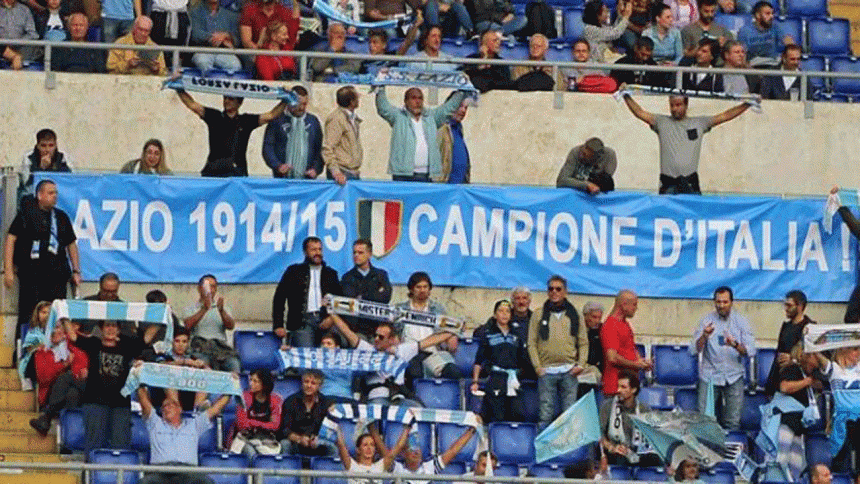Genoa, Lazio and the ghost Scudetto

Football is quite rightly taking a back seat as the world takes stock of the momentous events that are unfolding around them. Serie A is at this moment suspended, to be perhaps played at a later date or maybe a title awarded after the league has been frozen in time. This is not the first time it has happened. In fact, in the wake of a cataclysmic crisis, the outbreak of the Great War, Genoa were awarded the title despite the season not yet being completed. That decision still brings controversy today.
The suspended championship was due to the entry into World War I by Italy on May 24, 1915. The league was much different back then and saw teams play in groups. These groups were split into Northern Italy and Central/Southern Italy. The winners of the groups would then move to semi-finals and eventually it would be whittled down to leave the winners of the North to face off against the winners of the Central/South. Back in 1915 Genoa, were looking like they would play Lazio, but this never happened. The title was awarded to the Rossoblu in 1919 and it is still part of a dispute to this day, as Lazio President Claudio Lotito is petitioning the league to get the decision reversed.
Football, like the world, was extremely different back then, but it was beginning to show elements of what we see today. Genoa for one had appointed Italy's first manager, an Englishman, William Garbutt. The term 'Mister' to which players today refer to the coach comes from this appointment when the playing staff then referred to him as Mr Garbutt.
Garbutt had arrived in Italy in 1912, reportedly on the advice of Vittorio Pozzo. He was revolutionising the club and would be involved in three Scudetto-winning squads. He had not yet secured one when the 1914-15 season got underway, but he was confident in his squad and especially his attacking options. This season started with an almost 'shock and awe' feeling to it, with games incomprehensible by today's standards. They started by beating Acqui 16-0, before besting fierce local rivals Andrea Doria (the precursors to Sampdoria) 3-0 and 8-0, a wound that hurt more as Garbutt has signed some of their players before the campaign. They flew through the qualification group, winning nine and losing one, scoring 61 goals in 10 games and conceding five.
They then went on to beat Inter 5-3 in the next group stage and looked to be in complete control. Next up was a game against Pozzo's Torino and confidence was high. This soon turned sour, however, as the Genoese found themselves 3-0 down at half time and eventually lost 6-1. Things were made better when 'Mister Garbutt' reportedly made three changes to the team and the new entries all scored in a 3-0 win against Milan. The same three newfound Genoa heroes then helped their team beat Inter at the Campo via Goldoni and they looked in pole position to qualify.
When war was declared, it meant Genoa would not get chance to face Torino in that decisive game. They finished the group with five games played and seven points. Both Torino and Inter also had played five and had five points. With two points for a win, Torino could have finished top if they had beaten Genoa, as they had a plus two goal difference. Lazio controversially had finished their Central-South group, played all six games, managed 10 points and had the best goal difference. The final was never played and Genoa, incredibly, were awarded the title.
Garbutt's men may well have qualified and beaten Torino, but this is questionable, as they had been beaten so heavily in the earlier game. The Romans had a right to feel hard done by, for they had qualified, they had managed to officially make the final and had a strong case to make. However, in 1919, the title was handed to the Northern team and Genoa and Garbutt would go on to more trophies and more successes. Genoa had won six titles already by this point, was it simply just decided that they would have carried on their normal form? Perhaps, but this argument will rumble on into history.
--This article, written by Richard Hall, appeared in the Football Italia blog.

 For all latest news, follow The Daily Star's Google News channel.
For all latest news, follow The Daily Star's Google News channel. 



Comments